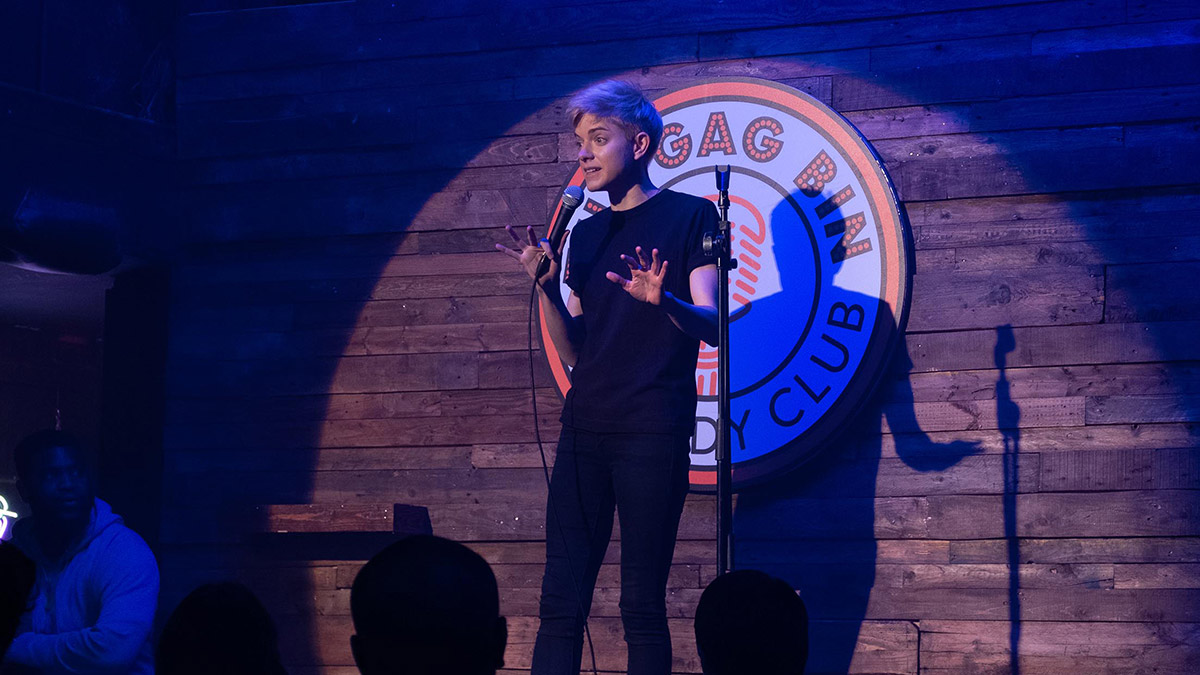Amongst all the anxiety of the current environment, “Feel Good” is the much-needed tonic to life’s woes. As much of the media speculates about the ongoing dreaded C-word pandemic, Canadian comedian Mae Martin’s semi-autobiographical TV debut is a perfect shelter from the outside world. Though it deals with real themes, including addiction, toxic familial relationships, and sexual and gender identity, “Feel Good” is both uplifting and heart-warming. The soundtrack is also pretty stellar, featuring the likes of Fleet Foxes, Young Fathers, and the Spice Girls. It makes for perfect lockdown screening.
“Feel Good” is not a show about a perfect relationship. In fact, it’s the opposite: Mae and George’s relationship is as rocky as they come, and this is an important take-away. A recovering addict and somewhat failing comedian, Mae, played by Mae Martin, sleeps on her friend’s sofa and has an overwhelmingly complicated relationship with her parents. By contrast, George, played by Fresh Meat’s Charlotte Ritchie, is a teacher and grew up in cosy Oxford. Mae’s “addictive personality”, as is labelled by her mother, played by icon Lisa Kudrow, leads her to become completely consumed by George, and, namely, George’s lack of dating experience with women. As is common in many lez-bi couples, Mae and George’s relationship becomes very intense very quickly: this is where the troubles start.
As the plot progresses, Mae’s anxiety that she is George’s “experiment” increases. Mae becomes convinced in the event of a break-up between the two of them, George would simply “go back to dating men”. Anyone that has finished the series will know that despite the post-breakup situation being left open, it is evident that George is certain of her attraction to women, which creates a nice “full circle” moment of sexual exploration.

“Feel Good” deserves credit for its diverse representation of sexuality. As is made evident, George feels she cannot be open with the likes of Binky, who, having lived a very sheltered, middle-class life, struggles to understand the complexities of sexuality. It also deals well with the complexities of gender identity: being bisexual, Mae expresses a complicated relationship with her body and her gender.
Though the plot slows towards the end, “Feel Good” is a refreshingly honest comfort blanket from the outside world. For me, the winner was George’s complex character: with her brown hair and “femme” appearance, George is the archetype that some queer women avoid like the plague. This is a trait which I’m sure will resonate with my fellow queer women who aren’t butch, but also aren’t “lipstick”. When I first came out, I too feared that I would be labelled “not gay enough” by the LGBTQ+ community itself.
In the end, “Feel Good” makes it clear that appearances don’t matter, which I believe is an important message to preach. It’s not about labels like butch, femme, or lipstick: it’s about feeling comfortable, confident, and loved, and this is one of the main messages preached by “Feel Good”. In the words of iconic but problematic LGBTQ+ icon Ru Paul: tens, tens, tens across the board.
Image Credit: IMDb

